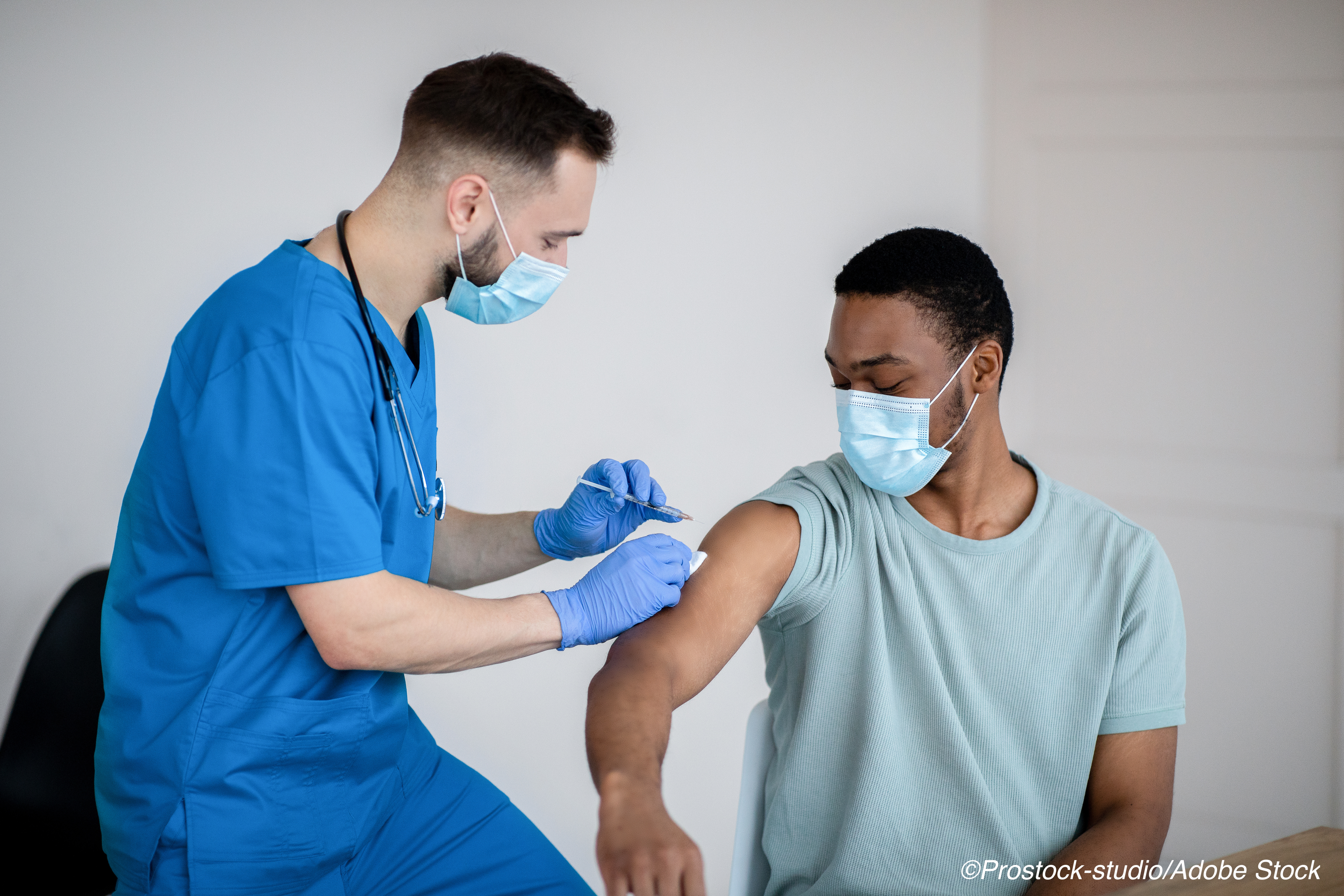
Results from a survey commissioned by the National Foundation for Infectious Diseases (NFID) revealed very low confidence in Covid-19 and influenza vaccines among Black adults in the U.S., as well as distrust of healthcare services and frustration over racial disparities in care.
The survey, which was conducted by NORC at the University of Chicago and included 1,340 U.S. Black adults, found that 55% of respondents are worried that they or their loved ones will get Covid-19—and yet only 49% of respondents actually plan to receive a Covid-19 vaccine once they are eligible, despite Black individuals facing a disproportionate risk of serious disease or death from the virus. Among that 49%, only 19% plan to get vaccinated as soon as possible, while 31% would prefer to wait. Similarly, only 54% of Black adults either have received or plan to get a flu vaccine during the 2020-2021 flu season while 35% do not.
“The survey findings underscore the need to build trust in vaccines and the healthcare system among Black adults, including among younger age groups and women, who often make healthcare decisions for their families,” said Patricia N. Whitley-Williams, MD, NFID president and associate dean of inclusion and diversity at Rutgers Robert Wood Johnson Medical School, in an NFID press release. “Medical professionals and the healthcare system at large must engage with Black communities, address their concerns, and convey the safety and importance of these vaccines in protecting against both Covid-19 and flu. We need to address common misconceptions identified in the survey and make it clear that there are currently safe, effective vaccines available in the US to help prevent Covid-19 and flu, and you simply cannot get Covid-19 or flu from the vaccines.”
The survey results suggested that vaccine acceptance varies by age, with 68% of respondents 60 years of age and older planning to get the Covid-19 vaccine while only 41% of respondents years 18-44 said the same. Similarly, 81% of Black adults 60 years and older agree vaccination is the best way to prevent flu-related deaths and hospitalizations, compared to 43% of Black adults ages 18-44.
For those who intend to get the Covid-19 vaccine, there reasons for doing so included protecting themselves (76%), protecting their family (73%), avoiding serious illness (69%), feeling safe around others (61%), protecting their community (58%), and the belief that life will not go back to normal until most people get the vaccine (54%). Those who were unsure or do not intend to get the vaccine cited concern about the development and approval of vaccines in such a short time (66%), worries that Covid-19 vaccines would harm them (45%), concern about getting Covid-19 from the vaccine (39%), concern that the vaccines don’t work very well (23%), and a lack of concern about getting seriously ill from the virus (14%).
Importantly, a substantial number of younger respondents expressed low trust in healthcare professionals and the U.S. healthcare system.
“Fifty-seven percent of Black adults age 18-44 years said they trust healthcare professionals a great deal or good amount when it comes to information about flu vaccination, compared to 75 percent of Black adults age 45 years and older,” NFID wrote. “Additionally, 60 percent of Black adults age 18-29 years said the U.S. healthcare system always or often treats people unfairly based on race and ethnic background, compared to 40 percent of adults age 60 years and older.”
NFID concluded that these results highlight the need to dismantle health disparities and increase vaccine education in at-risk populations. The foundation recommended that healthcare professionals and public health officials emphasize the following:
- “There are currently safe, effective vaccines available in the U.S. to help prevent Covid-19 and flu.
- “You cannot get Covid-19 or flu from the vaccines.
- “Now more than ever, during the Covid-19 pandemic, vaccination is critical to protect yourself, your loved ones, and your community (especially those who are most vulnerable including children, adults age 65+ years, and individuals with certain chronic health conditions).”
John McKenna, Associate Editor, BreakingMED™
Cat ID: 30
Topic ID: 79,30,730,933,30,31,926,561,653,927,151,590,928,924,934

